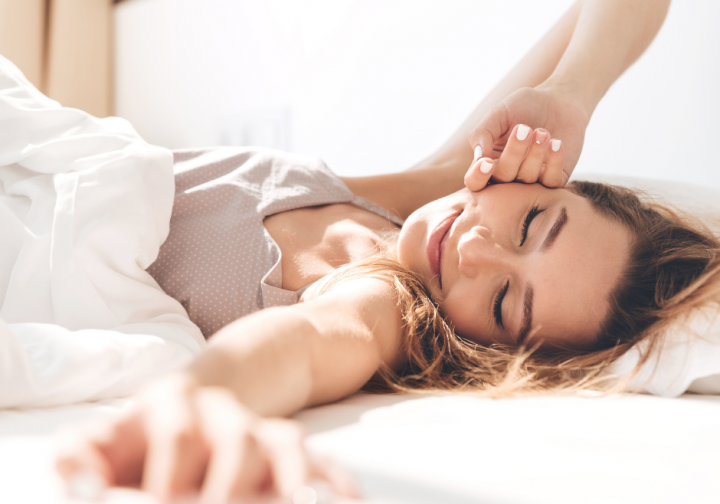
How to improve your quality of sleep
We spend one third of our lives by sleeping! Therefore a quality sleep an essential key to maintain our physical and mental health. The overnight rest means the time for a complete body rest and regeneration, so it is important to give some care to your sleep as well. Usually we start to appreciate the good sleep only when it leaves us.
Sleep quality consists of its length and its integrity. The length of sleep can vary individually between 6-9 hours per day, some people need less hours for normal daily functioning, and some people are asleep. The integrity of sleep is calculated according to sleep continuity, or according to any sleep disturbance. The more often sleep is interrupted, the poorer the quality. We have prepared a list of simple rules for you that will help you sleep better. Like everything else, preparing for a good night's sleep requires some discipline and regular adherence. If you are struggling with poor sleep, try the following tips:
- We recommend sleeping in a dark and quiet environment
- The room in which you sleep must not be overheated, the ideal temperature is 16 - 18 ° C
- The room should be well ventilated, otherwise carbon dioxide will accumulate in it, so consider opening a window if possible
- Consider investing in a quality mattress and a quality bed slat.
- Choosing the right mattress can take a long time - it is ideal to sleep on the mattress, which is not possible directly in the store. Take a look at better sellers who offer the option of returning / replacing the mattress, for example, after 90 days.
- Physical activity during the day helps your body get tired, and the tired body sleeps better, so consider whether you have any physical movement during the day (walks, running, exercising, gardening, etc.)
- Do not eat heavy meals 3 hours before bedtime
- Try to avoid screen exposure 1 hour before going to bed (TV, computer, tablet, mobile phone)
- Consider investing in glasses that block blue light. If you have glasses, put them on 1-2 hours before bedtime. Glasses stimulate the production of melatonin, allowing you to sleep better.
- Drink calming teas 1 hour before going to bed - such as lemon balm, lavender or chamomile
- Try to start sleeping no later than 11 pm
- Try to create regular day cycle - like get up in the morning and go to bed at the same / similar times, so that your body has the opportunity to create a sleeping rhythm.
Light and darkness are closely related to sleep quality. The importance of daylight for our health has long been underestimated. Today we know that regular exposure to daylight significantly controls our circadian rhythm. This rhythm is not only important for the periodic alternation of waking and sleeping, but also controls hormone secretion, cell division and function, and also affects the energy balance of our body. Regular exposure to daylight is an important prerequisite for the production of vitamin D in our body, and affects a number of other important processes, such as melatonin secretion ("the sleep hormone") and serotonin ("the happiness and good mood hormone").
Nowadays, we spend a lot of time with digital screens that emit trichromatic light containing blue light, which negatively affects the production of melatonin in our body. Significant changes in our lifestyle over the last 150 years do not provide us with an optimal environment. The following procedures may be recommended in relation to light:
- Prefer a regular stay in daylight
- When you have the chance, it minimizes clothing and exposes the skin to daylight
- Protect your skin from UV rays in intense sunlight
- Choose light bulbs in the bedroom so that their light is not trichromatic (including blue light)
- Protect your eyes from blue light with special eyeglasses that block the blue light
If you experience sleeping problems (new or long-lasting), do not hesitate to contact your Unicare GP, who may refer you to a specialist. Bookings are available via Unicare reception +420 235 356 553.
